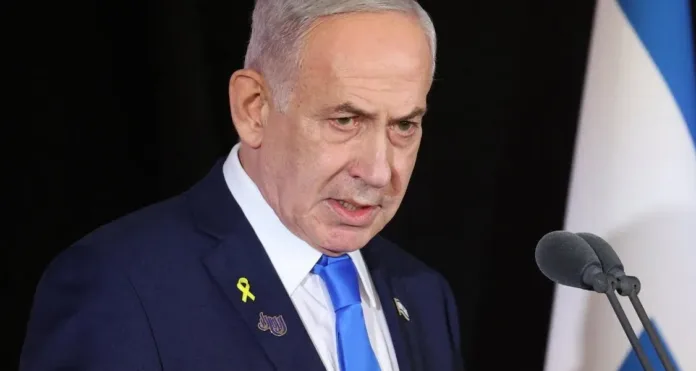Ceasefire brokered by Donald Trump three weeks ago at risk as violence erupts in Gaza
Israel has launched new air strikes on Gaza after one of its soldiers was killed in fighting, heightening fears that the fragile ceasefire with Hamas could collapse just three weeks after it was brokered by US president Donald Trump.
Witnesses reported explosions and tank fire in Gaza City and Deir al Balah late on Tuesday as Israeli forces responded to what they described as an attack by Hamas militants in the southern city of Rafah. The Israeli prime minister, Benjamin Netanyahu, ordered the military to carry out what he called “powerful strikes” on the enclave following security consultations.
A statement from his office said: “Following the security consultations, Prime Minister Netanyahu instructed the military echelon to carry out powerful strikes in the Gaza Strip immediately.”
Hamas denied involvement in the attack and said it remained committed to the US-backed ceasefire agreement, which came into effect on 10 October. The group accused Israel of breaking the truce first, claiming that Israeli forces had fired on its positions in Rafah and that air raids had already resumed in several parts of Gaza.
Health officials in Gaza said at least a dozen people were killed in overnight strikes, and hospitals in Khan Younis and Rafah reported an influx of casualties. The bodies of Palestinians were seen being carried into Nasser Hospital in Khan Younis on Tuesday night.
US Vice President JD Vance described the violence as a “skirmish” and expressed confidence that the ceasefire would survive. “We know that Hamas or somebody else within Gaza attacked an Israeli soldier. We expect the Israelis are going to respond, but I think the president’s peace is going to hold despite that,” he told reporters.
The truce, brokered in Cairo with Washington’s backing, has been one of the most significant diplomatic efforts since the war erupted last year. It led to the release of 20 surviving hostages held in Gaza in exchange for nearly 2,000 Palestinian prisoners, though the return of the bodies of the dead has been slow.
Hamas said it had postponed the planned handover of another hostage’s body, accusing Israel of ceasefire violations and warning that renewed strikes would hinder ongoing recovery efforts. The group claims 13 bodies of Israeli hostages remain inside Gaza, many believed to be trapped in its extensive tunnel network.
Israeli officials accused Hamas of breaching the deal by delivering the remains of a hostage who had already been recovered and by opening fire on Israeli troops. Government spokesman David Mencer told Sky News: “They were supposed to give back all of our hostages, and there was supposed to be a ceasefire. There are still 13 of our murdered hostages in Gaza, and Hamas are firing on our troops. That is not a ceasefire.”
Francesca Albanese, the United Nations special rapporteur on Palestine, said the situation demonstrated “a complete breakdown of trust” and again criticised Israel’s military operations. “This is not about ceasing fire; it’s about ceasing genocide,” she told Sky News, repeating her view — strongly rejected by Israel — that its campaign in Gaza amounts to crimes against humanity.
After weeks of relative calm, the renewed clashes have underlined how precarious the truce remains. Israeli troops were reportedly fired on in Rafah on Tuesday, returning fire in what the Israeli military called a “clear violation of the ceasefire”.
In Gaza, Hamas officials warned that further Israeli attacks could derail the delicate peace effort and delay recovery operations for both hostages and victims buried in the rubble. Heavy machinery brought in from Egypt in recent days has been used to excavate tunnels and collapsed buildings in Khan Younis and Nuseirat.
As of early Wednesday, air raid sirens sounded in parts of southern Israel, though no casualties were reported. Both sides accused the other of trying to sabotage the agreement, leaving the ceasefire — once seen as a diplomatic breakthrough — hanging by a thread.
